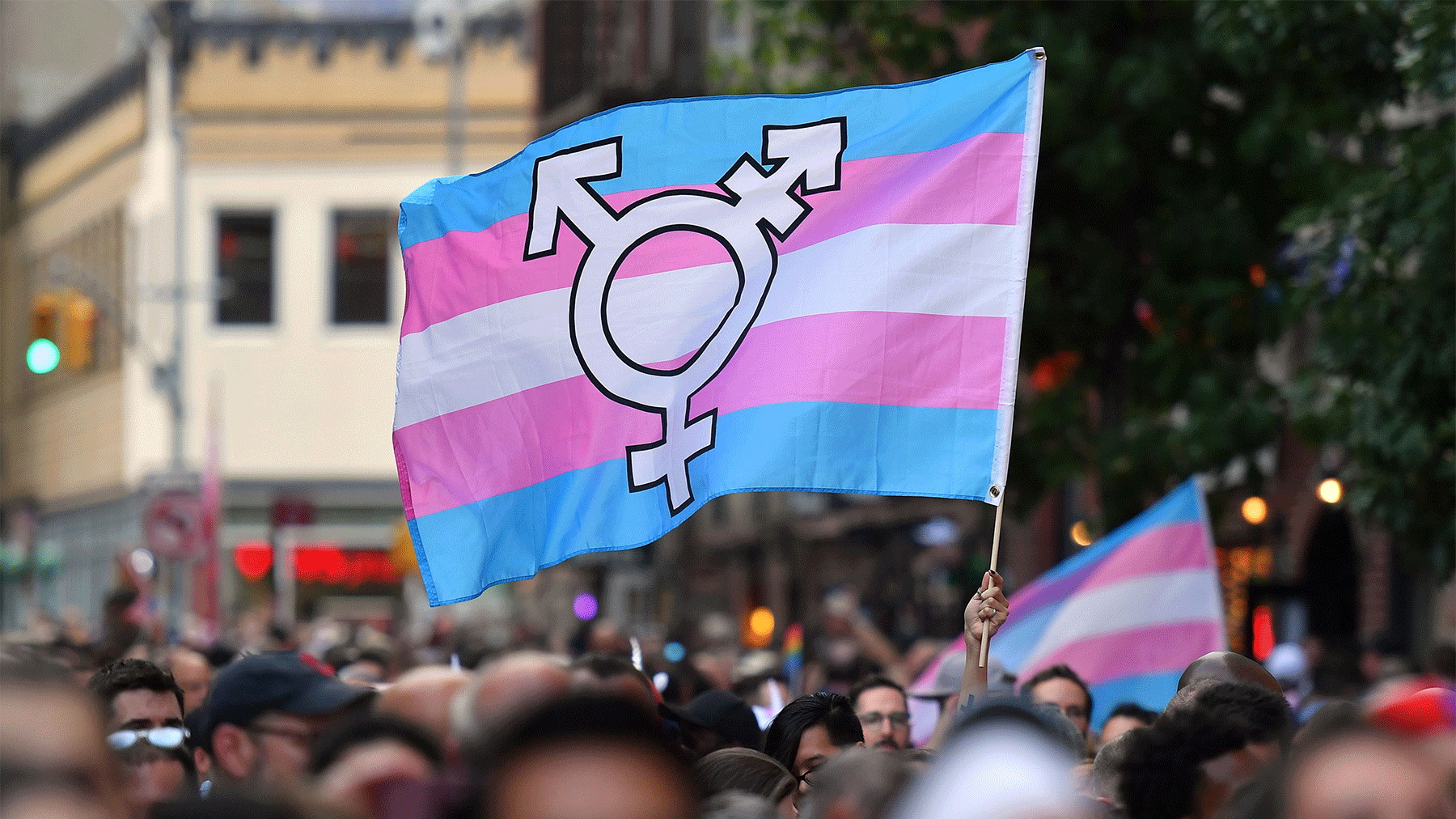Thousands of people will be marching in Washington, D.C., and across the nation today.
They’ll march for people like Dana Martin, 31, who was fatally shot in Montgomery, Alabama, on Jan. 6.
For Paris Cameron, 20, who was among two others killed in an anti-LGBTQ shooting in Detroit on May 25.
For Bailey Reeves, fatally shot in Baltimore on Sept. 2 at the age of 17.
And they’ll be marching for 15 other black transgender women brutally murdered this year – as well as for trans people across America whose rights are being ignored or trampled.
The first-ever National Trans Visibility March on D.C. not only demands justice for the victims of hate but calls for equality and inclusion for the trans community.
The overarching goal is congressional passage of the Equality Act, which would explicitly extend to the LGBTQ community the full range of rights and protections enshrined in the Civil Rights Act of 1964, thereby forbidding discrimination in public accommodations, employment, housing, health care, parenting, finance and other facets of American life.
The march comes at a critical time.
Not only has the trans community been terrorized by a series of brutal hate crimes this year, its rights have come under all-out assault by the Trump administration, which has attempted to ban trans people from serving in the military and is using the full power of the federal bureaucracy to reverse recent progress on LGBTQ rights.
The march also comes a little more than a week before the U.S. Supreme Court, on Oct. 8, will hear oral arguments in three cases that could, depending on how the Court rules, make passage of the Equality Act even more urgent.
The cases involve an interpretation of the phrase “because of … sex” in Title VII of the Civil Rights Act. The provision prohibits employers from discriminating against workers because of their race, color, religion, national origin or sex. The justices will decide whether this protection covers discrimination against LGBTQ people.
Trump’s Justice Department is arguing that the Act does not protect LGBTQ people from employment discrimination. Its brief to the Supreme Court seeks a finding that it’s legal for employers to fire them because of who they are.
As it stands, more than half the states do not expressly prohibit the firing of someone because of their sexual orientation or gender identity.
On the margins
Despite that progress has been made in recent years for the larger LGBTQ community, including the Supreme Court’s decision affirming marriage equality in 2015, trans people remain among the most targeted populations in America.
They’re the subjects of demonizing falsehoods spread by hate groups like the Family Research Council, which has lobbied against the Equality Act and whose president, Tony Perkins, is a close ally of President Trump.
Many also face not only discrimination in their daily lives but rejection by family members, harassment and, in the extreme, deadly violence. Last year, a study published by the American Academy of Pediatrics found alarming levels of attempted suicide among trans youth.
Today’s march will be a milestone in the broader struggle to ensure their rights.
The first known transgender march was spurred by the murder of Gwen Araujo, a 17-year-old transgender woman who was beaten and strangled by four men in 2002. The case heightened awareness of violence against LGBTQ people – especially the trans community.
Approximately 2,000 people attended the San Francisco Trans March in 2004. The next year, 4,000 people turned out. It has continued as an annual tradition and each year kicks off Pride weekend.
“As a Latinx trans man, it is a tragedy that we must still march for visibility in the U.S., so we can be treated with basic human dignity and respect when transgender and gender non-conforming people have been here fighting all along, from the Compton’s Cafeteria Riot, to the Stonewall Riots to ACT UP,” said Mich Gonzalez, an SPLC staff attorney attending the march.
Standing strong
In 2018, the Human Rights Campaign reported that black transgender women were the most targeted group among all transgender-related hate crimes, with 26 murdered that year.
This year, at least 18 black transgender women have been killed.
“We need this march because black trans women are being slain with impunity in this country,” Gonzalez said. “As I fight for the rights of asylum-seekers, this is particularly troubling. How can I assure transgender asylum-seekers they can seek a safe haven in the U.S. when they risk dying in ICE custody, and their transgender sisters are being murdered at disproportionate rates?”
The SPLC stands with the transgender community.
When Jessi Dye was fired on her first day at an Alabama nursing home solely for being transgender, we fought on her behalf. In September 2015, the nursing home settled the case and agreed to implement a new policy prohibiting such discrimination.
In December 2016, we won a sex discrimination case against a financial services company that fired a transgender man after he refused the company’s demand to dress and be treated as a woman. In June 2017, we collaborated with the Michigan Department of Corrections, leading the agency to adopt a new policy for the care of trans prisoners after a trans woman was denied the hormone therapy she needed while incarcerated in a Michigan prison.
And in October 2017, we won asylum for a trans woman who was raped and tortured by Guatemalan police, and received death threats from her co-workers because of her gender identity.
The national march in Washington, D.C., today is one of dozens being held across the country. SPLC will have a presence in Washington and in Montgomery, Alabama, where a number of SPLC staffers will attend the Transgender Visibility March on Montgomery, led by the Bayard Rustin LGBTQ Community Center.
SPLC will continue to fight for transgender equality, and we will stand shoulder-to-shoulder with our transgender brothers and sisters in our march toward justice for all. ;



